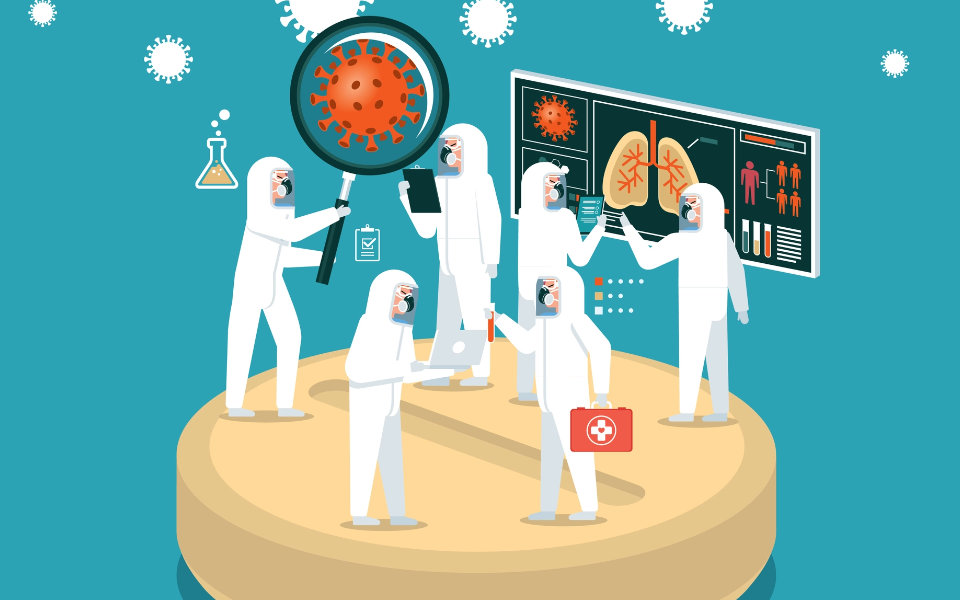The immune system function is one thing that cannot go wrong, especially nowadays. With the serious threat from several strains of harmful pathogens, is your immune system prepared for the battle?
It’s not supposed to be intimidating and complex. With the right set of information and extensive research, a healthy immune system is totally possible.
Before anything else!
What is the Function of Immune System?
According to Johns Hopkins Medicine, the immune system is made up of several organs in the body. The main role of the immune system is that it serves as a protective layer that fights against threat of harmful bacteria, viruses, fungi, and toxins.
This is the exact reason why a strong immune system must be a top priority. It serves as the body’s front runner or first line of defense against threat of disease.
The Two Types of Immune System
The immune system is very interesting.

In essence, the immune system has two main types that work hand in hand to maximise its full potential. Its ultimate goal is to function efficiently when the need arises. It’s designed to work in a seamless manner to prevent a more serious threat of disease to the body.
Let’s break down each type further:
1. First, the innate immune system
The innate immune system, also called a non-specific immune system, is pretty much the straightforward type of immune system. It’s efficient in such a way that it’s very much willing to attack almost instantly.
- When you suffer from an injury, the immune system holds up the tissues close together, and tag along its defense cells particularly the ones residing in the skin and mucous membranes. That’s where the wound develops, and eventually leading to recovery after some time, depending on the extent of your injury.
- The innate immune system doesn’t stop with holding the tissues together and close up your wound. It proactively sends specific immune cells to the injured area that eradicates threat of infection. It literally sweeps off germs and bacteria that may be present in the area of the wound.
2. Next, the adaptive immune system
The adaptive immune system is the “wing man” of the innate immune system. Its main role is to reinforce the complete absence of the potential threat of pathogens that may lead to infection. The adaptive immune system is also known for its capacity to “remember”.
This is the main reason why there are specific infections that a person can only experience once in a lifetime like chickenpox, measles, and the likes. It’s from the adaptive immune system’s unique character, which is to remember when an infection has already been present in the body at one point in time.
The adaptive immune system is composed of:
- T cells (found in the tissues in the body)
- B cells (also found in the tissues in the body)
- Antibodies (found in the blood and some body fluids)
You might be wondering? The immune system is literally all over the place. It is found on several parts of the body, they are all interconnected. It is why the approach to having a healthy immune system has to be well rounded.
With this amusing role of the immune system in the body, now we can easily grasp how important it is to have a strong immune system. It’s not a surprise why people across the board will fight tooth and nail to gain enough knowledge and acquire habits that build the foundation towards a healthy immune system.
The Truth About Boosting Your Immune System
Time and again, a handful of suggestions eventually pop out of nowhere and tell you to do this/read this, or what not to boost your immune system. Some will deliberately instruct you to bend over your morning and evening routine so you can pave the way to a revolutionary approach meant to boost your immune system. But, which of these glamorous tips are really worth doing?

1. First, always stay curious
Ask the right questions to the right people when you deal with your immune system.
At some point, pretty sure there might be one or two recommendations that were thrown at you and you were like, “where did that come from?”. This is the part where you can’t seem to wrap your head around the most dubious suggestion when all you want to happen is to be prepared when the threat to your immune system arises.
You can always obtain sound recommendations from medical health professionals like doctors, nurses, nutritionists, or even pharmacists. They are part of the cluster that are knowledgeable enough in finding the rationale why you should follow the trend in terms of building your way up if you’re trying to establish a strong immune system.
2. Next, you need a bit of everything
There’s no standardised way of having a strong immune system.
Of course, nothing can beat optimal nutrition. However, the human body works systematically, more than we can imagine. All parts of the human body are somewhat connected with one another. With this, a holistic approach in navigating your way through immune system boost is very important.
More and more people are now becoming engaged to the idea that the body’s immune system is beautifully designed with the help of several factors aside from food. Because of the body’s complex neurotransmitters and other mechanical processes, external factors such as stress and trauma and actually compromise the immune system.
3. Your environment has a special role in your immune system
Before exploring the possibilities on how we can navigate our way through the healthy immune system, it is important to recognise that external factors like relationships, emotions and mood are some of the known indirect factors that contribute to immunity.
Epigenetics, or the role of a person’s environment can indirectly affect overall health through the chemical changes that happen in the body, which leads to re-wiring of a person’s internal mechanical processes. This can be life-changing, since the immune system definitely plays a role in it.
The common ground of these external factors revolves around the perspective of building habits. When a person is surrounded with like-minded individuals who consciously decide to prioritise health, it becomes easy and smooth sailing to start the health journey on your own.
Humans in general are creatures of habit. In this premise, we all need to find the commonality among our environment that will power us through the wellness journey, specifically the immune system.
The immune system has been the center of attention particularly in the past two years in the world of health and wellness. True enough, the web world has bombarded people’s minds with exceptional (sometimes unconventional) tips on how to boost the immune system—with the ultimate goal of being in tip-top shape to combat the COVID-19 virus.
4. Stress is the root cause of weak immune system
The body’s immune system is very sensitive to stress. When you catch flu, suffer an injury, encountered death of a loved one, the immune system reacts to it.
On a bigger scale, stress triggers the immune system to release antibodies and defense cells when trauma is detected by the body. That happens when you feel swelling or inflammation on a simple wound or injury. When you feel sick, you get fever. That’s the immune system working to fight off infection in the body.
But, what if inflammation gets out of hand?
When the body is exposed to inflammation (internal or external), it simply means one thing. Your body is stressed. It can be emotional, physical, or mental stress. This can cause a serious threat. When a person comes up with this over a long period of time, the immune system can react pretty bad. Chronic inflammation brought by stress simply over works your body, which leads to compromised immune system later on.
This might surprise you, but food and nutrition can either do good or bad to your immune system. More and more studies have been suggesting that intake of unhealthy foods can cause inflammation in the body in several forms, which can further cause a weak immune system.
How Do You Keep Your Immune System Strong?
This question has been asked countless times especially when the threat of the COVID-19 virus started to surface around the globe.
The internet bubble will flood you so much information to the point that you can’t even identify which ones are true and which ones are total hoax. There are a lot of factors that make up a good immune system. Here are some:

1. Good food is the foundation of a healthy immune system
This seems to be a no-brainer since it has been written in stone even before the pandemic began. Studies are suggesting that food and nutrition have a massive impact on the body’s immune system. Why is that?
- Food plays a huge role in your GUT MICROBIOME. Gut microbiome is the diversity of microorganisms like bacteria, viruses, and other microbes inside the gut that navigates the response of the immune system when the threat of disease is present in the body. The gut demands a complex variation among the strains of good bacteria since each strain has a distinct purpose in combating a specific pathogen.
At the end of the day, no one really knows which threat will make its way in the body. So, the balance of complex microorganisms has to be out and about in the gut!
- The birth of prebiotics and probiotics in maintaining balance or equilibrium in the gut microbiome brings a solid foundation to the overall health of the immune system. These 2 elements are now magnified because of their influence in the gut microbiome:
a) Prebiotics
This is a total game-changer for your immune system. Prebiotics are known to be the “degraded nutrients” found in the gut microbiota. They are originally in the form of fermented short-chain fatty acid (SCFA). These substances navigate its way to having ample number of good bacteria in the gut, which is a huge deal in having a healthy immune system.
Now, you might ask, where do you get the prebiotics?
There are two major groups where you can get potent sources of prebiotics, these are:
- fructo-oligosaccharides
- galacto-oligosaccharides
The terms mentioned above may sound intimidating at first, but, they are actually very simple.
You eat the colours of the rainbow, yes.
Generally speaking, colours of the rainbow: red, orange, yellow, green, and purple have so much to offer in terms of populating your gut with high-value nutrients that you will need in maintaining gut health. All these sums up the foundation that we’re trying to build in putting up a healthy immune system. In addition to this, there is evidence indicating that prebiotics can be obtained through a wide selection of root crops, green and leafy vegetables.
This substantial knowledge of eating a rainbow is becoming more and more beneficial!
b) Probiotics
Probiotics have gained popularity in the aspect of the immune system. Generally, they are the cluster of good bacteria that settle in the gut, ready to respond when necessary. Two of the most substantial strains of good bacteria that need to be present in the gut are the Lactobacillus and Bifidobacterium. Researches have revealed that fermented food items are known to have live, active probiotics that are recommended to be part of daily intake to maintain a strong immune system. Examples of fermented food items are:
- Kimchi
- Sauerkraut
- Pickled vegetables
- Yogurt
2. Vitamin and mineral supplements are your additional safety net towards strong immune system
The benefits of vitamins and minerals are limitless, even in building a healthy immune system. It creates a total difference when you dig deeper into what can specific vitamins and minerals do to your immune system. Here are the 3 trail blazers that are known to boost the immune system:
a) Vitamin D
Traditionally, Vitamin D is known to have an impact on bone health. Well, there’s more to that!
Vitamin D supplement can seriously elevate the game when we speak of a healthy immune system. The benefit of Vitamin D is quite simple but very powerful. It naturally blocks the development of inflammation inside the body which shackles the immune system. Enough dose of Vitamin D, combined with regular sun exposure makes the synergy of both elements more beneficial for the body in the long run.
This evolving fact about Vitamin D contributes to the immune system’s capacity to overcome threat of disease. What’s even more breath taking is the fact that people who struggle to climb up the ladder of reaching a healthy immune system, are those people who are Vitamin D deficient. There are available studies over the years revealing that a decline in Vitamin D in the body can eventually lead to infection and even autoimmune diseases.
b) Vitamin E
This might sound unexpected, but yes! Vitamin E has an active role when we deal with the immune system.
This vitamin essentially acts as an antioxidant once it enters the body. Vitamin E does its remarkable role as an antioxidant when the body would want to get rid of the culprit of oxidative stress that may compromise the immune system. Since oxidative stress can potentially accumulate in the body over time, the body would need extra help from Vitamin E.
Well, it doesn’t end there. Vitamin E, just like Vitamin D, has its unique way of putting stop signs to harmful pathogens before it crashes the immune system. Vitamin E is actually quite easy to find since you can easily get it from vegetable oils and even nuts.
On top of that, intake of polyunsaturated fatty acid or PUFA happens to be more effective with an adequate dose of Vitamin E. This is because Vitamin E is a fat-soluble vitamin, therefore, fatty acid such as PUFA gives a more positive effect whenever they go together inside the body.
c) Zinc
Zinc supplement adds value to what the organs in the body can do when threat of disease is actually present in the human body. In general, Zinc boosts the body’s ability to speed up recovery and healing. However, like any other mineral supplements, one has to be extra careful in pumping up Zinc to daily intake. Anything taken in excess can manifest an altered effect on the human body.
Over the years, Zinc has earned the reputation in the area of infectious disease, which tends to be magnified when a person is suffering from a weak immune system. Historically, Zinc supplement is given to children and other vulnerable groups which are susceptible in having compromised immune system.
In general, Zinc boosts the body’s ability to speed up recovery and healing. More often than not, Zinc deficiency follows when a person’s immune system happens to be compromised.
Lifestyle Factors That Strengthen Your Immune System
There Are Lifestyle Factors That Serve As “Life Line” For Strong Immune System.

It’s pretty much established that a strong immune system is encouraging everyone to take a kore holistic approach, not focusing on food sources alone. If you want a sustainable outcome when dealing with this health goal, you might want to revisit your existing habits.
Essentially, bad habits create an imbalance in overall health that can take a toll on the immune system eventually.
Here are some of the lifestyle factors that may ring a bell to you!
1. Mindful shift in eating is essentially the powerhouse of a healthy immune system
This is definitely on top of the list when we speak of lifestyle factors. Fundamentally, the immune system can only work as efficient as it could be when the raw materials (which are the foods you eat) are high quality.
Countless researches are linking the intake of fruits, vegetables to have an overflowing amount of antioxidants need to be in your plate. Why? Of course, it creates a positive balance, a.k.a harmony of good bacteria in the gut microbiome that further boost the function of the immune system.
Well, this is so predictable, right? This fact might not be surprising for some people since it’s been common knowledge for a while already. Let’s open a can of worms and reveal what are the unhealthy ones that you should stay away from. This will surely give you a new perspective in how you should navigate your healthy immune system journey!
Time to dive deep and understand the rationale of the foods that you shouldn’t be eating:
a) Alcoholic beverages
Alcohol consumption can make your immune system fall apart. Why? Alcohol contains an unimaginable amount of sugar which creates an imbalance in the gut microbiome. It basically blocks pathways for the immune cells to work effectively.
There’s more to that. Alcohol consumption actually opens the gate for more serious diseases like fatty liver, cardiovascular disease, diabetes, and the list goes on. All these are the root causes why the immune system may be compromised in the long haul.
b) Refined sugar and artificial sweeteners
In recent years, experts have been having a clear picture of what refined sugar and artificial sweeteners do to the human body. Surprisingly, these substances can mess up the gut health BIG TIME.
Why are these considered a threat to the immune system? Think of it this way, refined sugar and artificial sweeteners activate inflammation that creates an imbalance to the ecosystem in the gut microbiome. Sounds big, right?
When you take a step back and see the real world, completely eradicating your intake of foods that have these components is next to impossible. So how do you help yourself?
- Consciously cut down your intake of food items that might be having refined sugar or artificial sweeteners like soda, gum, candies, pastries.
- Take full responsibility in reading food label in your food packages.
- Take the high road and explore the idea of making food from scratch so your life won’t depend on ready-to-eat foods that might contain vast amount of refined sugar and artificial sweeteners
To burst your thought bubble, refined sugar and artificial sweeteners may be hiding in one of these terminologies when you take a peek on the food label:
2. Sleep can do wonders for your immune system
A handful of evidence is showing that having enough sleep for about 7-8 hours daily keeps your cortisol hormone at bay. Cortisol hormone, also known as stress hormone literally whacks your body in more ways than you can imagine.
- It has the tendency to create a gap that hampers the function of specific organs in the body that plays major role in the immune system, one of which is of course the brain.
- When the body lacks sleep, functionality of the brain deteriorates, lacking focus and agility to send signals on other parts of the body when harmful bacteria/ viruses may be entering the body.
The larger benefit that sleep does to the immune system is how it can build up the strength of the T cells. T cells are one of the important defenses of the immune system that fights off infection and disease. With enough sleep, the T cells can rightfully do their job effectively.
Also, when the body gets good sleep, it basically puts the body at rest. It can literally reduce the feeling of “burn out” which gives the body good space to recover and react positively when the immune system has to be on high alert mode.
3. Exercise boosts immune system
Establishing a regular physical activity or movement (particularly the kind of activity that you enjoy), can have a tremendous effect on your immune system. Just like what you get from having decent sleep, it can dramatically drop your cortisol level which can totally ditch a threat against the body’s immune system.
Also, because of the efficient blood flow from having to move more regularly, the pathogens that might be residing in the respiratory tract or the lungs can be ousted in the body in no time.
However, don’t get too excited and go overboard. An overload in exercise might take a toll on your immune system as well. Doing things like regular physical activity, when conducted mindlessly can do more harm than good to the body’s immune system due to inflammation. So, do it in moderation!
4. Good hygiene
An entirely sanitary practice can go a long way. It’s pretty much a given fact that washing hands in a timely manner daily inhibits the transmission of harmful pathogens that can make or break your immune system. Also, sanitation on a larger scale can help individuals in a shared space like condominiums, flats or any space where one or more persons will be using it. The idea here is to stop potential spread of infection that may be positioning on surfaces.
In fact, the Center of Disease Control and Prevention or CDC has recommended the general public to do handwashing with soap and water for 20 seconds particularly on instances where people are coming from the loo, before eating, or simply when your hands get dirty.
This aspect of lifestyle shift holds accountability to each individual to consciously do their part and put a stop on the spread of diseases. Hygiene doesn’t only include handwashing, it also involves the use of safe drinking water, appropriate loo etiquette, and even personal hygiene which may be a challenge for some people at certain extent.
Conclusion
One valuable takeaway that one needs to understand in boosting the immune system is that, the approach is dynamic. Collectively, a gradual shift of habits (changing bad ones to good ones) can eventually build an ecosystem where the body has nowhere else to go but up in shaping a strong immune system that is built to last.
It certainly pays in the long run when a person is open-minded in learning alternative approaches to address a healthy immune system. Also, the human body continues to evolve on how we can attain our health goals on our own pace. It’s only right to have the right mindset!
Moreover, the process of obtaining a healthy immune system is way beyond food and nutrition alone. Let science take its own course in revealing the substantial evidence where you can be healthy inside and out. With the threat of a wide spectrum of viruses, bacteria and other harmful pathogen, it’s important to look for practices or habits that are sustainable enough for you and your immune system.


